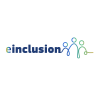Authors:
Gábor Dombi, Bence Kollányi and Szilárd Molnár
Forum of the Hungarian IT Organisations for Information Society (Inforum)
Description (short summary):
This document is the first report published in Hungary with the aim to analyse the issue of information society from the points of view of those who have been excluded from it so far.
According to the data provided, digital gaps have been getting deeper for years in the Hungarian society, and the use of the Internet and computers have not become accepted or requested for by the majority
(60 % of the adult population is digitally illiterate). On the other hand, infrastructural developments and investments decided by the government failed to generate a cultural change in this field. The authors consider that there are simply too few possibilities for a non-user to acquire direct experience and know about the advantages of the Internet, and there are few experts and services from where the non-user could obtain help.
In the light of domestic actions taken so far, the reports generally finds that the Hungarian government has not paid enough attention to the necessity of eInclusion and digital social admission and to the directions recommended by the European Union. Rather, the actions organised until now have been mainly the results of civil initiatives. The authors also stress that 2007 being the “European Year of Equal Opportunities for Allâ€, it would be natural to include also the questions of eInclusion, so that Hungary could be properly prepared for its Year of eInclusion in 2008.
Therefore, the authors urgently call for a policy combining economical, social, healthcare and welfare aspects, and whose devisors and executors can override legal and competence frameworks. The report formulates a series of recommendations pertaining to:
-  Popularisation of the thought of eInclusion – theoretical preparation;
- Motivation programs for the disadvantaged and excluded groups;
- Educational programs for the disadvantaged and excluded groups;
- Provision of content for informing and educating the targeted groups;
- Access and devices (Broadband, affordable equipment, etc.).
In its closing chapter, the report introduces some of the best eInclusion practices in Hungary.
Related articles(s):
Copyright information:
Original URL:
http://einclusion.hu/2007-09-13/first-hungarian-einclusion-report-and-action-plan/
Languages available:
EN
Number of pages:
46
Nature of documentation: Independent reports and studies

